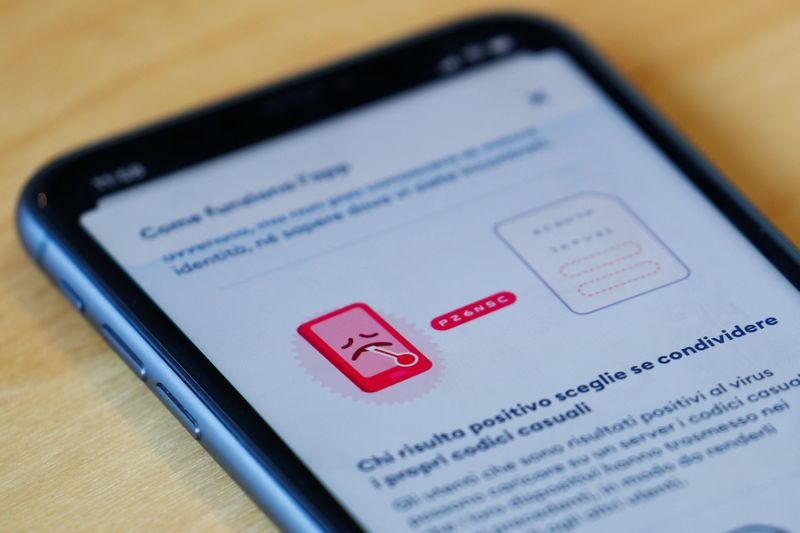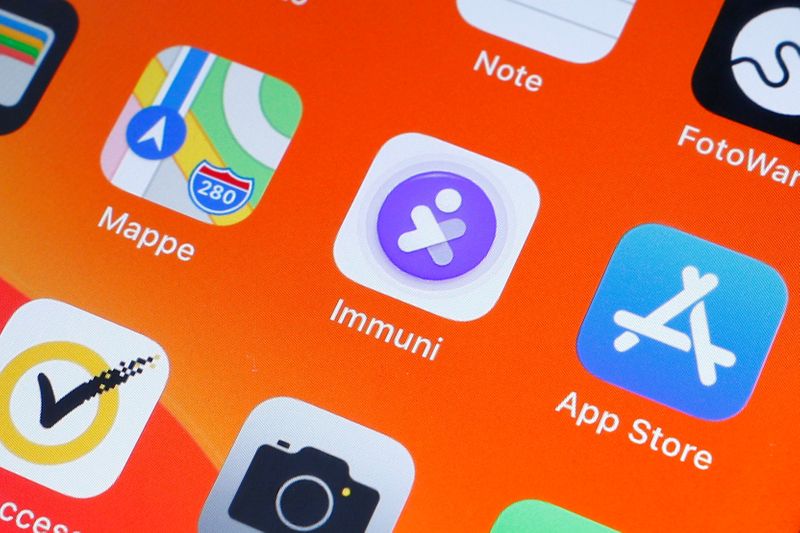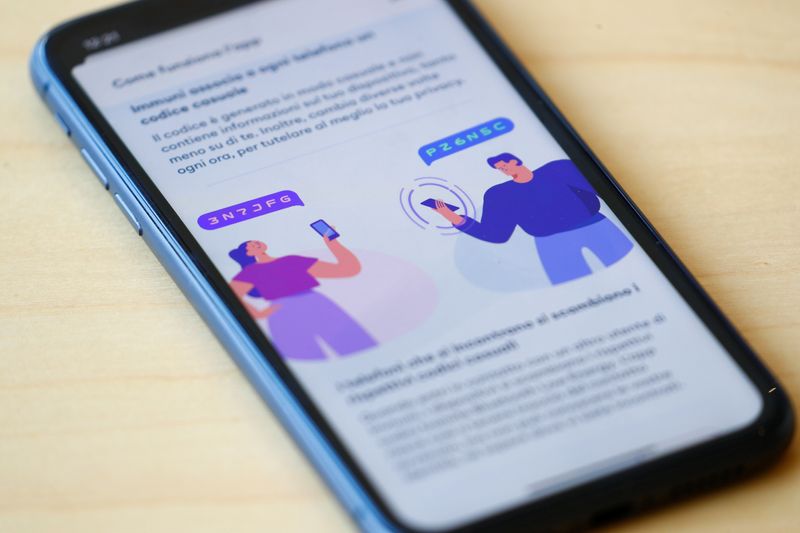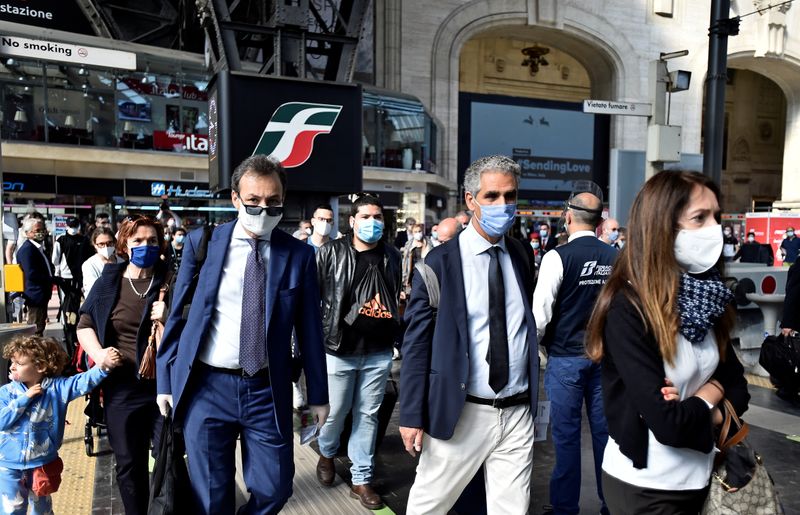ROME (Reuters) – Italy, the first major European country to roll out a smartphone app to trace COVID-19 infections that does not rely on a centralized database, has already seen 2.2 million downloads in 10 days, a sign Italians are setting aside privacy concerns.
The government, like those of other European countries hit by the virus, is touting the software as a vital tool to help avoid a second wave of infections. Germany launches its own version next week.
“We want a summer in which tourism is as safe as possible. This app can help us resume activities after the lockdown,” Technological Innovation and Digitalization Minister Paola Pisano told Reuters.
Italy was the first European country to be hit hard by the coronavirus and has suffered more than 34,000 deaths. A lockdown drove infection rates sharply lower, but fears remain of a renewed flare-up later this year.
The government’s call for a tracing app originally met resistance from privacy advocates and opposition politicians, but many Italians are warming to it.
“Even my in-laws downloaded it,” said Daniela Camozzi, 47, in Sarzana, a town in the northern Liguria region, one of the first parts of the country where the app went live.
“I don’t get all this concern about privacy. Every time we use our smartphone our data is profiled much more massively than this app can.”
The app has so far been switched on in just four regions, accounting for 8 million of Italy’s 60 million people. The authorities hope to sustain the enthusiasm when it has its countrywide launch later this month.
Called Immuni (immune), the app uses Bluetooth short-range radio based on a joint technology standard from Apple and Google to log close contacts securely on the device. It was developed by a Milan tech start-up, Bending Spoons.
In the case of a positive coronavirus test, the doctor uploads the result anonymously onto a server, and a notification is sent to people the holder has encountered. It advises them to call a doctor, self isolate and seek a test.
Italy’s adoption of this ‘decentralized’ approach is in line with a growing number of European countries, including Switzerland, Germany and Austria. Their common approach could later support a ‘roaming’ function for foreign travel.
France, meanwhile, launched an app last week that stores data on a central server – an approach which is not supported by Apple on privacy grounds and works poorly on iPhones.
Stefano Denicolai, a member of Italy’s COVID-19 task force, said Immuni could help break chains of infection if 25% of Italians download it, provided they are concentrated in key locations and social sectors of the population.
It remains to be seen if the app’s early popularity will be sustained as it is rolled out more widely. Right-wing opposition leader Matteo Salvini is still withholding support: “Until there is a total guarantee on privacy protection I won’t download anything at all,” he said.
(Elvira Pollina reported from Milan; writing by Angelo Amante; editing by Gavin Jones and Douglas Busvine)





























